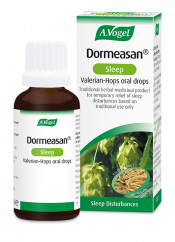An introduction to sleep disorders
Sleep disorders are a group of medical conditions which affect your ability to fall asleep or the quality of your sleep. They are usually considered to be psychological or psychiatric conditions and therefore distinct from sleep problems which are in general, non-medical conditions and more commonly encountered.
Sleep disorders require treatment from doctors, psychiatrists or psychologists.
Insomnia
This is a common term used when a person can’t sleep well. However, true insomnia is rare and in reality, many people who say they suffer from insomnia have trouble sleeping as a result of one or more causes of sleep problems.
Insomnia, when the term is used correctly, is a psychological disorder which affects sleep and the person suffering the condition rarely has more than one or two hours of sleep a night.
Follow the link for more information on insomnia. and read our top tips on how to fight insomnia.
Sleep apnoea
This sleep disorder is seen when normal breathing whilst asleep is interrupted for 10 seconds or more. It is more common in those who are obese.
During these episodes, muscles surrounding the throat relax causing a partial obstruction of the airways to the lungs. The person suffering this disorder does not notice the event, but blockage of the airways disturbs the normal sleep cycle, shifting sleep from the REM to the non-REM phase of sleep. The result of this is that someone suffering from sleep apnoea does not feel as rested the next day because sleep is interrupted.
In addition, during an episode of sleep apnoea, your brain may respond to the blockage causing you to give a loud snore or snort to wake you up. This can happen more than ten times an hour, so it is clear why sufferers and their partners feel fatigued the next day.
Narcolepsy
This sleep disorder arises because the brain cannot regulate normal sleep cycles. It causes the person with the disorder to fall asleep unexpectedly, even if it is in the middle of the day at a meeting or whilst driving. Often, the person affected will slip straight into REM sleep.
Narcolepsy is often associated with cataplexy – a health condition where muscles suddenly relax or weaken to the extent that they fail to support the body’s weight. This is, intriguingly, most common when experiencing strong emotions such as whilst laughing or crying.
It has been suggested that narcolepsy affects 25,000 people in the UK, although this is only a rough estimate.
Delayed Sleep Phase Syndrome
This arises when a person’s biological clock is ‘out of sync’. The disorder takes ‘night owl’ or ‘early bird’ a stage further into the realm of a medical condition. The person affected is unable to fall asleep until the very early hours of the morning (often 4am) but would then be able to sleep well past 12 noon.
If the responsibilities of a 9 to 5 job or social events did not inhibit sleep, one suffering this disorder will be able to adopt a regular sleep pattern - but only several hours after everyone else.
Although the condition can affect anyone, it appears to be most common among teenagers, and thankfully, most appear to be able to grow out of it.
Sleepwalking
This is also called somnambulism. This sleep disorder is characterised by the ability to perform everyday activities in a state of unconsciousness. These can range from sitting up in bed to dangerous activities such as driving a car.
Episodes can last from as little as 30 seconds to half an hour or longer. Often, the sleepwalker does not remember their night time escapades.
Sleepwalking is most common among children and is sometimes a sign of sleep deprivation. It is said that up to 15% of the UK population have experienced this disorder at some point in their lives.








